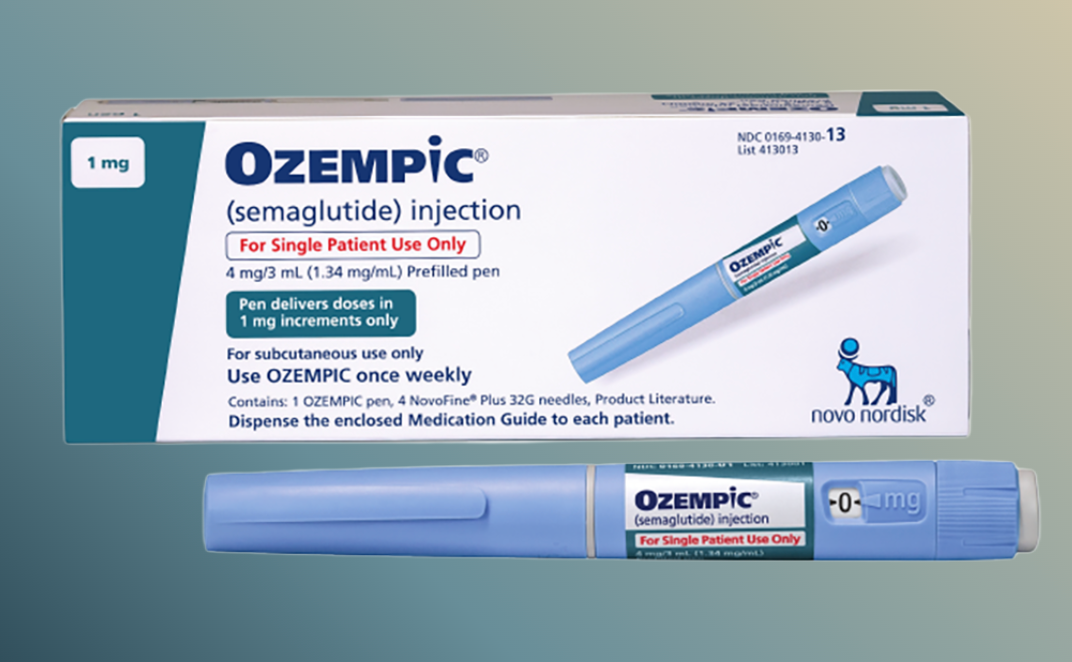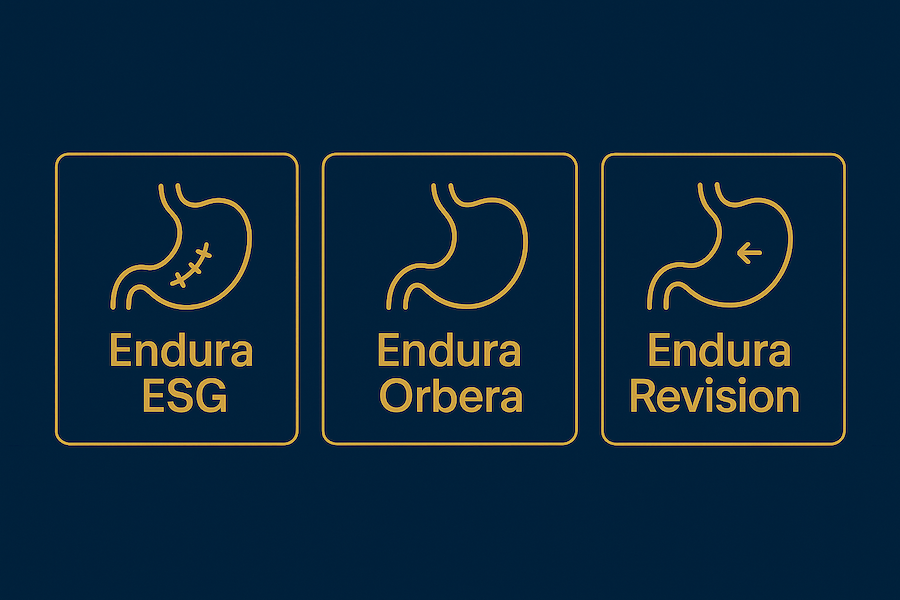How to Get Insurance to Cover Bariatric Revision: Step-By-Step
Do you meet insurance requirements for gastric sleeve or gastric bypass revision? Learn how to get insurance to cover revision bariatric surgery step-by-step.

Bariendo Team
Team @ Bariendo
If you’ve regained weight after bariatric surgery—or developed frustrating complications like severe acid reflux or ulcers—you’re probably wondering: Will insurance cover a revision? The answer? Maybe—but only if you meet some very specific requirements.
In this guide, we’ll walk you through exactly how to get insurance to cover revision bariatric surgery, step-by-step. You’ll learn what insurers consider “medically necessary,” what documents you’ll need, and how to strengthen your case for approval. We’ll also cover what to do if you don’t qualify—and explain why non-surgical revision options are a more accessible, lower-risk solution worth considering.
How to Get Insurance to Cover Revision Bariatric Surgery
Getting insurance to approve a revision after bariatric surgery isn’t always easy—but it is possible. Whether you’ve had a gastric sleeve or gastric bypass, most insurers will only cover a second procedure if there’s a clear medical need and strong documentation to support your case.
This section walks you through each step of the approval process—starting with what qualifies as “medically necessary,” all the way through appeal strategies if your initial request is denied. If you’re feeling overwhelmed by the red tape, don’t worry—we’ll help you break it down so you know exactly what to expect and how to prepare.
Curious about highly effective, non-surgical revision options that may be a better fit? Reach out to our team to explore your options.
Step 1: Understand What Insurers Consider Medically Necessary
Before anything else, it’s important to know that insurance companies will only cover a revision bariatric procedure if it’s considered medically necessary—not simply because you’re unhappy with your results.
But, if your first bariatric procedure led to serious health complications, your insurer may approve a corrective revision.
Covered complications often include:
- Severe or chronic GERD (acid reflux)
- Ulcers, fistulas, or strictures
- Staple-line failure, leaks, or stretched anatomy
- Band slippage or erosion (for Lap-Band patients)
- Malnutrition, dumping syndrome, or other serious side effects
You’ll need medical records—like endoscopy reports or imaging results—to confirm the complication and show that a revision is necessary to correct it.
You may also qualify if your initial surgery failed to deliver sufficient weight loss—even when you followed all post-op recommendations. Insurers typically define failure as losing less than 50% of your excess weight, or regaining most of the weight 12 to 24 months after surgery. To be approved, you’ll need to show that:
- You’ve been compliant with your medical and nutritional guidance
- The issue isn’t due to lifestyle factors alone
- An anatomical or metabolic issue is likely contributing to the outcome
If your situation matches either of these scenarios, you may be eligible for insurance coverage of a surgical revision. If not, don’t worry—we’ll also cover non-surgical revision options that may be a better fit for your goals and your budget.
Step 2: Gather Documentation to Prove Medical Necessity
Once you understand what qualifies as medically necessary, the next step is building a paper trail that clearly supports your case. Insurance companies rely heavily on documentation, and missing even one key piece can lead to a denial or delay.
Here’s what you’ll need to collect:
- Operative report from your original surgery: This tells the insurer exactly what procedure you had, when it was performed, and whether there were any complications. It also helps your current surgeon determine the most appropriate revision approach.
- Medical records confirming complications or weight loss failure: If you’re dealing with symptoms like GERD, ulcers, or malnutrition, include test results such as endoscopy findings, imaging reports, or physician notes. If your issue is weight-related, provide a history of your weight and BMI since the original procedure. Many insurers want to see that you’ve lost less than 50% of your excess weight or regained most of it.
- Follow-up notes from your care team: These notes should show that you’ve stayed engaged in your care—attending regular appointments and following your provider’s advice.
At this stage, it’s a good idea to start working closely with your bariatric surgeon. They can help ensure that everything you submit clearly supports your case and aligns with your insurer’s specific criteria.
Step 3: Check to See If You Still Meet Bariatric Surgery Eligibility Criteria
Even if your revision is medically necessary, most insurers require that you still meet the original criteria for bariatric surgery. This means they want to see that your current health status justifies another procedure—just like it did the first time.
Here’s what insurers typically look for:
- Your current BMI: Most plans follow the NIH and ASMBS guidelines, which require either:
- A BMI of 40 or higher, or
- A BMI of 35 or higher with at least one obesity-related condition (like type 2 diabetes, sleep apnea, or hypertension)
- Ongoing health conditions: Insurers are more likely to approve a revision if your obesity continues to impact your health. Documenting current comorbidities (like high blood pressure or insulin resistance) can strengthen your case.
- Repeat of pre-surgery clearances: Some insurers will require you to complete the same pre-approval steps you went through before your first surgery—like nutritional counseling and psychological evaluations—to ensure you’re still a good candidate.
If you no longer meet these requirements, don’t panic. We’ll cover non-surgical revision procedures later in this post that may be a better fit, along with financing options to make them more accessible.
Step 4: Provide Proof of Compliance with Post-Op Protocols
Insurance companies want to know that you followed the rules after your original surgery. Why? Because they don’t want to approve a second procedure if the first one “failed” due to skipped follow-ups, poor dietary habits, or lack of long-term support.
To strengthen your case, you’ll need to show that you did your part—and that the outcome was still not what it should have been.
Here’s what to include:
- Nutritionist or dietitian notes: These should show that you met regularly with a licensed professional, received dietary guidance, and made a consistent effort to follow your plan. Bonus: if your dietitian noted that you were compliant but still struggled with weight loss, that helps your case even more.
- Food and supplement tracking: If you kept a food journal, or used a tracking app, include those records. It shows initiative and accountability—two things insurers value.
- Support group participation or behavioral therapy: Some plans ask for evidence of emotional or behavioral follow-up care. If you attended a bariatric support group or met with a therapist to work on long-term habits, include that documentation too.
- Post-op appointment records: Visit summaries from your surgeon or primary care doctor that note your weight, progress, and adherence to medical advice are also useful.
Remember, your goal here is to demonstrate that you gave the first surgery a fair shot—and that, despite your best efforts, a revision is now necessary.
Step 5: Work with Your Surgeon to Submit a Letter of Medical Necessity
Once you’ve gathered all the right records, your surgeon will play a key role in making your case to the insurance company. Most insurers require a formal letter of medical necessity, written by your bariatric provider, that outlines why a revision is essential to your health.
A strong letter should include:
- Your medical history and previous surgery details: This sets the stage for why you needed the first procedure and what was done. It also shows whether any complications occurred that could explain the need for a revision.
- What’s gone wrong—and why: Whether it’s persistent GERD, weight regain, or a stretched gastric pouch, your surgeon should clearly state the problem and back it up with medical evidence (imaging, endoscopy, labs, etc.).
- Proof of compliance: Your surgeon should confirm that you followed post-op instructions, engaged in follow-up care, and made an effort to maintain weight loss.
- Why revision is medically necessary now: The letter should connect the dots—explaining why the current issue can’t be solved with lifestyle changes alone, and how a revision (surgical or otherwise) will address it.
This letter can make or break your approval. Be sure to work with a surgeon who’s experienced in preparing insurance documentation and who understands the importance of aligning with your specific insurer’s criteria.
Step 6: Understand Your Insurer’s Prior Authorization Process
Every insurance company has its own approval process—and understanding yours can save you time, stress, and unexpected denials. This stage is where all your documentation comes together and is formally submitted for review.
Here’s what to expect:
- Submission of the pre-authorization packet. Your bariatric team will send a detailed request that includes:
- Your surgeon’s letter of medical necessity
- Operative and clinical records
- Documentation of complications or failed weight loss
- Proof of compliance and eligibility
- Any required forms from your specific insurance provider
- Waiting period for review: It can take anywhere from a few days to several weeks for your insurer to make a decision. Some companies may request additional information or schedule a peer-to-peer call between your surgeon and a medical director.
- Common reasons for denial: Even well-prepared requests get denied. The most common reasons include:
- Incomplete documentation
- Revision requested too soon after the first surgery
- Lack of evidence showing medical necessity
- Failure to meet BMI or comorbidity criteria
This is why it’s so important to double-check everything before submission and work with a provider who’s familiar with your insurer’s specific process. But if your request is denied, you still have options, and we’ll cover how to navigate that next.
Step 7: Prepare for the Possibility of an Appeal
Approximately 25% of patients considering bariatric surgery are denied insurance coverage as many as three times before finally being approved, and it can be even more difficult to get approval for a surgical revision. But a denial doesn’t always mean it’s the end of the road—it may just mean you may need to submit additional documentation or clarify your case.
Here’s how to be ready:
- Review the denial reason carefully: Your insurer will provide a reason for the denial—whether it’s due to missing information, timing (e.g. not enough time has passed since your first surgery), or disagreement about medical necessity. Understanding the exact reason helps you target your response.
- Strengthen your documentation: This might include updated imaging, more detailed clinical notes, or new letters from your surgeon or dietitian. In many cases, it’s not that your case wasn’t valid—it just wasn’t well-supported in the paperwork.
- Have your surgeon request a peer-to-peer review: Some insurers allow your surgeon to speak directly with a medical director to explain the situation. This can be especially helpful if your case involves complex complications or less common procedures.
- Consider alternative options if surgery isn’t approved: If your appeal is still denied, it may be time to explore non-surgical revision options—which we’ll cover in the next section. These can be more accessible for patients who don’t meet traditional revision criteria or whose insurance doesn’t offer coverage.
Appeals take patience—but many people are approved the second or third time around. With the right support and complete documentation, you’ll have a stronger shot at success.
Does Insurance Cover Gastric Bypass Revision?
Yes, insurance does cover gastric bypass revision, but only when the revision is medically necessary. Most insurers will approve a gastric bypass revision if you’re dealing with serious complications like ulcers, dumping syndrome, pouch dilation, or malnutrition—especially when these issues don’t respond to non-surgical treatment.
If the issue is weight regain, approval is harder to get. You’ll need to show that the weight gain is due to anatomical changes (like an enlarged pouch or stoma) and not lifestyle factors—and that it’s been at least 12–24 months since your original procedure.
Detailed documentation from your surgeon, imaging results, and evidence of compliance are key to getting approval.
Does Insurance Cover Gastric Sleeve Revision?
Insurance will sometimes cover gastric sleeve revision, but the requirements are strict. Insurers may approve a gastric sleeve revision if you’ve developed serious complications like severe GERD, a stretched sleeve, or other anatomical issues confirmed by imaging or endoscopy, especially if those complications can’t be resolved with non-surgical solutions like medication.
If your revision request is based on weight regain or minimal weight loss, insurance may still consider it—but only if you can prove the outcome isn’t due to non-compliance and that at least 12–24 months have passed since your original surgery.
In either case, strong documentation and a clear recommendation from your bariatric surgeon are essential.
When Non-Surgical Bariatric Revisions Might Be a Better Fit
Not everyone qualifies for a second bariatric surgery—and even when they do, the risks, recovery time, and insurance hurdles can be overwhelming. That’s why many patients explore non-surgical, endoscopic revision options instead.
These procedures are done endoscopically, through the mouth, without any incisions, which means fewer complications, faster recovery, and no hospital stay. For people who don’t meet insurance criteria, can’t afford time off work, or want to avoid the risks of another major surgery, a non-surgical revision can be a more appealing path forward.
Explore whether a non-surgical revision like TORe or SIS™ is right for you—our team can help you weigh your options.
Understanding Non Surgical Revision Options
Non-surgical bariatric revisions are performed using a flexible scope inserted through the mouth—meaning no incisions, no scars, and a much shorter recovery time. These procedures are ideal for patients who have experienced weight regain or symptoms like reflux after gastric sleeve or gastric bypass surgery.
At Bariendo, two endoscopic revision options are available:
- SIS (Sleeve-in-Sleeve): Designed for patients who’ve had a gastric sleeve, this revision procedure uses endoscopic sutures to tighten a stretched stomach. It can help restart weight loss, reduce hunger, and improve portion control without a second surgery.
- TORe (Transoral Outlet Reduction): This is used for gastric bypass patients whose pouch or outlet has stretched over time. TORe can reduce dumping symptoms, improve satiety, and support renewed weight loss with minimal downtime.
Both procedures take about 45 minutes, are done on an outpatient basis, and allow patients to return to normal activities within a few days.
Will Insurance Cover These Procedures?
Insurance does not typically cover non-surgical revision procedures like SIS™ or TORe. These techniques are still considered “electivel” by many insurance providers, even though they’re backed by clinical research and performed by experienced specialists.
That said, for patients who don’t qualify for another surgery—or want to avoid the higher risks and longer recovery—non-surgical revisions can be a smart, self-pay alternative. At Bariendo, we offer flexible financing options to make these procedures more affordable, with pricing that’s much lower than traditional surgical revisions when paid out of pocket.
Covered Or Not, You Still Have Options
Getting insurance to cover a bariatric revision takes time, documentation, and a clear medical case—but for many patients, it’s possible with the right approach. By understanding what qualifies, gathering the right records, and working closely with your provider, you can build a strong case for approval.
If you don’t meet insurance criteria—or simply want a less invasive option—non-surgical revisions like SIS and TORe may offer the results you’re looking for with fewer risks and a faster recovery. At Bariendo, we’re proud to offer these affordable, outpatient alternatives along with financing options to help you move forward with confidence.
Don’t meet insurance requirements for revision surgery? Bariendo offers affordable non-surgical revision procedures with flexible financing options. Schedule a free consultation to see if you qualify!

